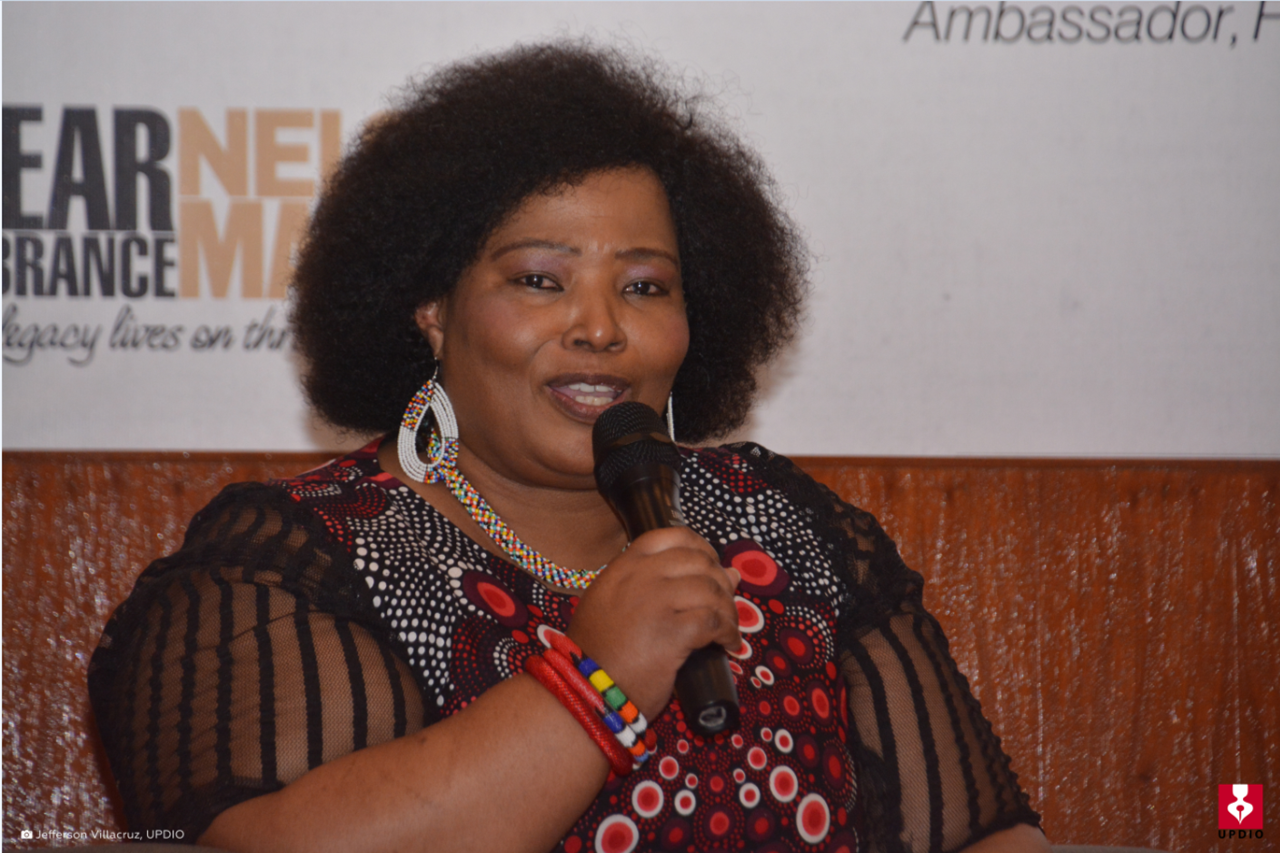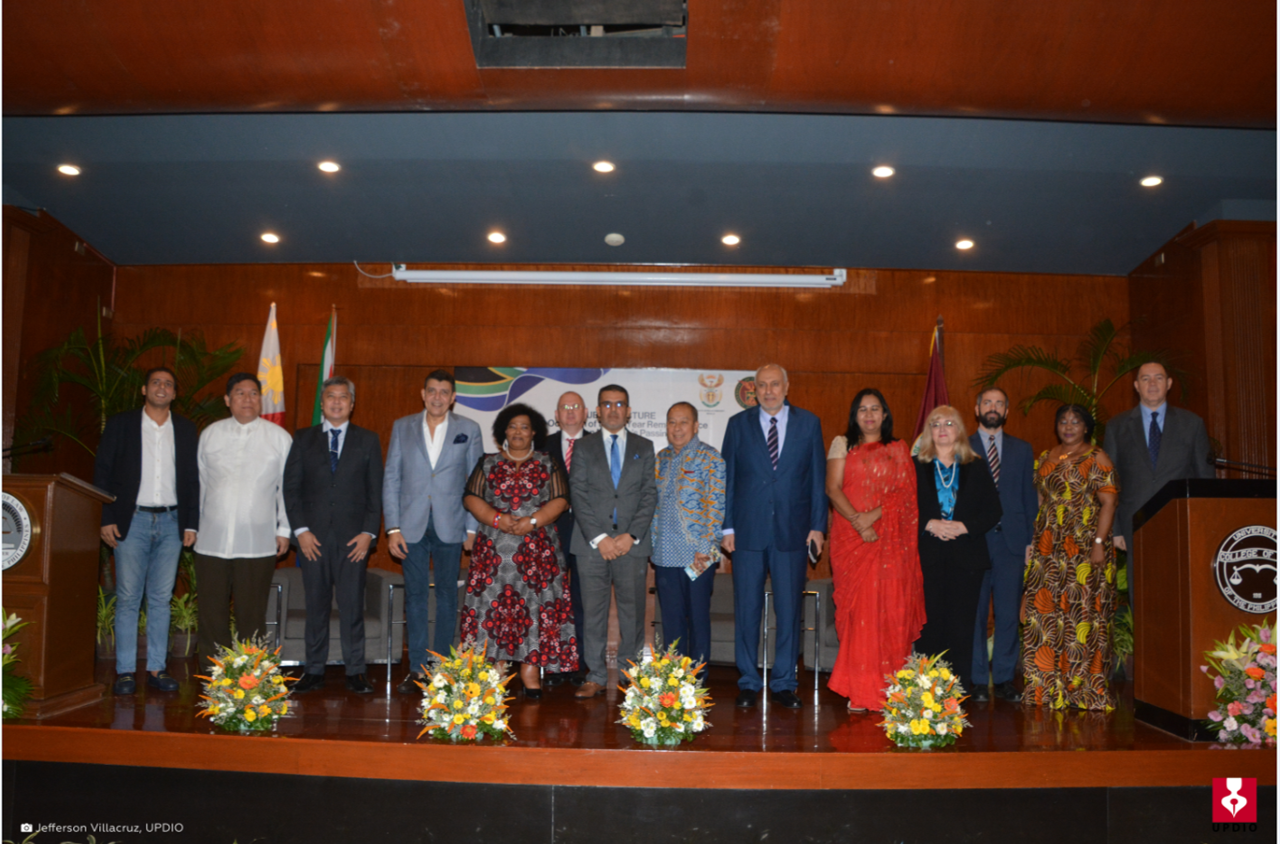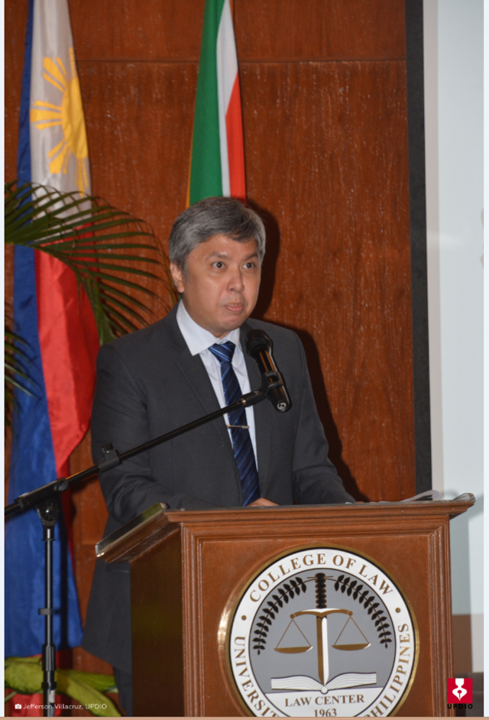At the recent public lecture on the 10th anniversary of Nelson Mandela’s passing, Bartinah Ntombizodwa Radebe Netshitenzhe, South African ambassador to the Philippines, underscored how the former South African president valued education above all.

Netshitenzhe said that institutes of higher learning like UP Diliman (UPD) are critical in shaping and nurturing the youth.
She quoted Mandela, saying that the “youth of today will be the leaders of tomorrow, the creators of our national wealth, those who should care for and protect the people and the environment.”
According to the Nelson Mandela Foundation website accessed on July 27, Mandela completed his bachelor of arts degree through the University of South Africa and went back to Fort Hare for his graduation in 1943. He began studying for a bachelor of laws (LLB) degree at the University of Witwatersrand but left in 1952. He started studying again in 1962 through the University of London, but also did not complete the degree. In 1989, he was able to obtain the LLB degree through the University of South Africa and graduated in absentia in Cape Town.
She said Mandela’s own experience in education was riddled with racial and class discrimination and yet, “His endurance was motivated by his desire of obtaining quality education with [the] understanding that education is key in shaping one’s view and giving up was not an option.”
The South African ambassador who once worked with Mandela said the late freedom fighter’s life parallels her own and he serves as her moral compass.
“I too [am a] product of apartheid, [I] grew up in the township squalor, [and] was shaped and nurtured by my own experiences and surrounding,” Netshitenzhe said.
“Education remains the key [that] cannot be taken for granted. It is the duty of all of us to continue to look after each other and continue to [do] good as it is the only way we can break the cycle of poverty and [it is] a ticket to [a] safer and better world,” she said.
Apart from education, Netshitenzhe said Mandela espoused forgiveness as fervently as he championed freedom. Mandela would remark forgiveness liberates the soul [and it] removes fear.
“Mandela’s generation endured the most and [yet] he is synonymous with forgiveness,” she said. “[The] 27 years in Robben Island [that ended with] him coming out and forgiving his tormentors should serve as a lesson to many leaders who today still are convinced that issues can be resolved on the battlefield,” Netshitenzhe added.

Mandela and Africa. Almost 10 years after his death, Mandela continues to influence not only his country but the whole of Africa.
“True to Mandela’s spirit and reminder and commitment to values that he espoused, we have experienced huge infrastructure development in East Africa, yet we are also experiencing serious setback because of raging infighting in Sudan. More still need to be done and focus should be [on] how each African country is implementing Africa Agenda 2063… committed that Africa should move away from civil war and peace should be achieved by negotiations, and people’s interest and development should be in the forefront on silencing the guns,” Netshitenzhe said.
The African Union website accessed on July 27 stated that Africa Agenda 2063 is Africa’s blueprint and master plan for transforming Africa into the global powerhouse of the future.
Netshitenzhe also spoke on various issues, such as the war between Ukraine and Russia.

“South Africa stands on neutrality, [and] is informed by our own experiences, and how we managed to overcome. What people referred to as a miracle, with the wisdom and leadership of Mandela and [the] others, we managed to overcome. As our president [Cyril Ramaphosa] said, we stand ready to assist and facilitate for everlasting peace between Ukraine and Russia because when we are done and gone, they will still be neighbors. In closing, I would like to quote Mandela when he said, ‘It always seems impossible until it’s done,’” Netshitenzhe said.
Netshitenzhe delivered her public lecture on July 21, 10:30 a.m. at the Malcolm Hall Theater of the UPD College of Law. The lecture carried the theme, The Legacy Lives on Through You.
Among those present at the public lecture were some ambassadors to the Philippines and members of the diplomatic corps, the officials of UP and UPD led by Chancellor Edgardo Carlo L. Vistan II, and the faculty, staff, REPS, and students of UPD. The event was organized by the Embassy of South Africa in the Philippines and UPD through the UPD Office of International Linkages, the UPD College of Law, and the Department of Political Science of the UPD College of Social Sciences and Philosophy.
